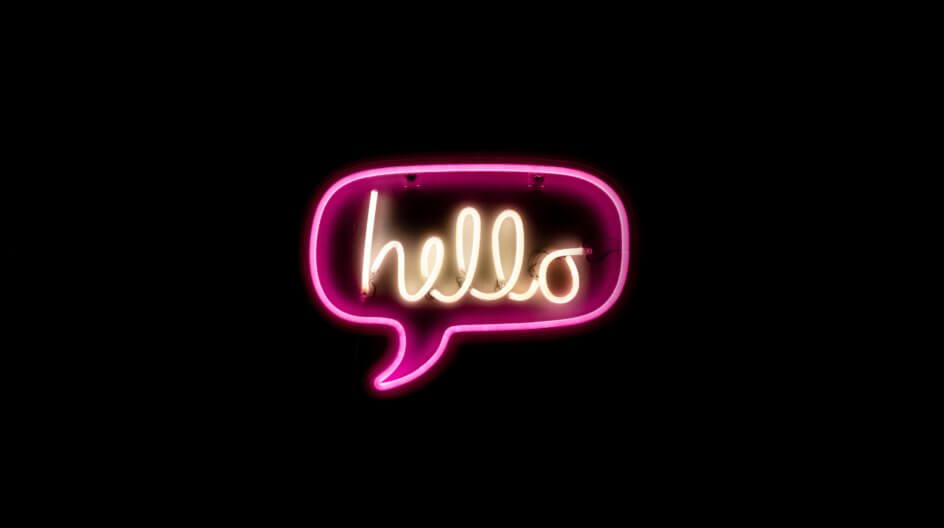“Hmmm. Probably on drugs – I mean, look at that hair.”
“No doubt, he was definitely up all night partying.”
“Pfft. Dude thinks he’s too cool for school. Probably a total douchebag.”
“I bet he can barely string a full sentence together.”
Sometimes, it’s as if I can read people’s thoughts like they’re written in speech bubbles over their heads. And although the commentary isn’t always quite so judgmental, it does happen that way more times than not.
I walk into a room full of strangers. Their eyes take in what they see before them – a man whose love for music has shaped him in so many ways. They observe the way I’ve chosen to dress and the way I move through space.
And then they jump to conclusions.
Incorrect conclusions, but it’s not their fault. That’s just how the human brain works. Although we continuously remind ourselves not to judge a book by its cover, we continue to do so whenever we encounter something unfamiliar. We seek to put it into terms we can understand, and frequently that involves pigeonholing someone unfairly and inaccurately.
The human brain is nothing if not efficient. Tasked with processing an insane number of thoughts and perceptions every second – conscious and not – it’s got to take shortcuts. These are the well-worn paths we’re pre-programmed with; years of personal experience cement them in place. Some of those shortcuts could hardly be considered politically correct, much less accurate. But they are efficient.
I see this.
This means that.
What’s the upshot of all that subconscious brain activity? Stories. Stories about you. Stories about me. And unfortunately, these stories don’t need to have any actual basis in fact. Once they exist, unfounded or not, they can end up sticking around for the long run.
Left unchallenged, these preconceived notions people form about each other can develop into a blockade preventing a genuine connection. Luckily, challenging them is not only possible — it’s something you can achieve far more easily than you might’ve thought. Furthermore, it’s something you really should be trying to do.
Can We Interrupt Their (Incorrect) Story?
Laura Huang’s book Edge: Turning Adversity into Advantage touches on this. As a professor who has studied stereotypes and bias for over ten years, she found that success can hinge on a person’s ability to influence other people’s perceptions of them. The key, she asserts, is in being able to flip negative assumptions about your strengths and flaws. For more information on her findings and approach, you can listen to our interview with Laura.
E.D.G.E. stands for:
E… Enrich: What is the value you bring into your work environment and social circle? There’s the value you know you have, and there’s the value others see. Here at The Art of Charm, we always go above and beyond to enrich every situation we’re in. Every situation offers us an opportunity to practice as we take the next step in the lifelong journey of personal transformation.
D… Delight: Delighting your peers in the context of your professional environment. This is about bringing fun and humor into situations, helping people be at ease. You can only succeed at this if you are present in the moment. (This is why we have an improv workshop as part of our Bootcamp training.) Personally, I want to see the humor in everything in life. Having a sense of humor about yourself and the world around you makes everything easier. This includes those moments when someone else’s thinking doesn’t line up with what you were hoping for. Staying positive can make those situations much easier to navigate.
G… Guide: Guiding other people’s perceptions of who you are. You need to be able to tell your story, or people will give you a story based on their own preconceived perceptions. If you’re worried about this being manipulative, keep in mind that they will form judgments no matter what you choose to do. Also, they will be making assumptions about what you’ve achieved and where you’re heading. Guide their thinking and show them your potential — if you’re putting your actual self forward, it is less about strategy and more geared towards being authentic about who you are.
E… Effort: If you’re actively following The Art of Charm, you’ve got this one covered. We’re not afraid of going above and beyond to work on ourselves. We don’t believe in fate, but instead, believe the fact that we create our own destiny. This includes being able to see other people’s doubts as opportunities. Negative perceptions of us only hold power over us if we let them. By turning stereotypes into benefits working in our favor, we can use effort to stay one step ahead of the game.
Specifically, it’s our responsibility to guide people’s perceptions of us. Of course, Art of Charm has some help if you want to nail your first impressions, as well.
How Can We Pierce Through Their Unconscious Preconceptions?
Challenging someone’s unfounded assumptions doesn’t need to be a stressful experience. In fact, instead of being a confrontation, it can present an opportunity to create delight and have some fun. The instant I become aware that I need to tell my own story rather than letting others’ preconceived notions take over, I get really real. I call out the stereotype I suspect they’re running with – and I do so with humor.
Give some thought to the stereotypes people likely run in their brains as they encounter you. Then find amusing ways you can poke fun and pierce through those preconceptions. They won’t be expecting that; their brains have already told them how your interaction is likely to go. By shining a spotlight on the stereotype – in a funny, friendly way – you can help their brains to shift out of autopilot. That gentle jolt of vivid clarity is what makes real connection possible. It’s what wakes us up to the present moment.
And when you take responsibility for telling your own story, it’s that much easier to stay true to your authentic self.


